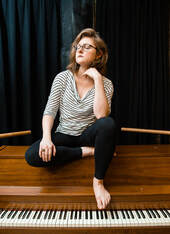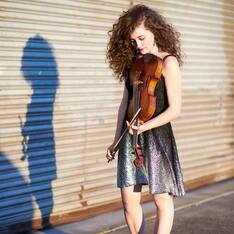Music for Oboe, Mezzo-Soprano, and Piano
With Kayleigh Butcher and Lana Norris
Wednesday, May 3, 2023
NYC's Interchurch Center
Orchestra of The Bronx
Ocotber 22, 2022
Rossini: Overture to L'italiana in Algeri
Haydn: Symphony No. 104 "London"
Mendelssohn: Violin Concerto
Orchestra of The Bronx
June 19, 2022
Bach: Brandenburg Concerto No. 1
Mozart: Bassoon Concerto
Schubert: Symphony No. 4
Bronx Opera
Mozart: La clemenza di Tito
May 14-22, 2022
Music for the Planet: A Chamber Recital for Oboe, Viola, and Piano
Wednesday, November 3, 2021
NYC's Interchurch Center
With Kayleigh Butcher and Lana Norris
Wednesday, May 3, 2023
NYC's Interchurch Center
Orchestra of The Bronx
Ocotber 22, 2022
Rossini: Overture to L'italiana in Algeri
Haydn: Symphony No. 104 "London"
Mendelssohn: Violin Concerto
Orchestra of The Bronx
June 19, 2022
Bach: Brandenburg Concerto No. 1
Mozart: Bassoon Concerto
Schubert: Symphony No. 4
Bronx Opera
Mozart: La clemenza di Tito
May 14-22, 2022
Music for the Planet: A Chamber Recital for Oboe, Viola, and Piano
Wednesday, November 3, 2021
NYC's Interchurch Center
|
Katelyn Simone
|
Lauren Siess
|
William Grant Still (1895-1978): Incantation and Dance
Charles M. Loeffler (1861-1935): Two Rhapsodies
Featuring music by two composers greatly inspired by nature, this program invites reflection on our many relationships with the environment--from the personal to the societal, from gardening to heavy industry--and calls attention to the responsibility we have to sustain it for future generations.
A masterful American composer of operas, ballets, and symphonies, William Grant Still is regarded as the “Dean of African-American Classical Composers.” Among his many accolades, Still was the first Black man in the United States to have a symphony performed by a major symphony orchestra. In 1961, he received the prize offered by the U.S. Committee for the U.N., the N.F.M.C. and the Aeolian Music Foundation for his orchestral work The Peaceful Land, cited as the best musical composition honoring the United Nations. Still himself played the oboe, and like much of his work, Incantation and Dance combines classical, jazz, and gospel elements into his own unique and thoroughly American sound.
The romantic, evocative Two Rhapsodies by Charles Martin Loeffler are the German composer’s best-known works for small ensemble. Drawing inspiration for these pieces from two eerie poems by French symbolist poet Maurice Rollinat, Loeffler explores beautifully the expressive ranges of the oboe, viola, and piano. No two moments are alike in this rich music that is at various turns playful or haunting, but always captivating. Loeffler was born in Schöneberg bei Berlin, but favored the French style and lived most of his life in Boston; his music combines these and many other influences. These two pieces are dedicated to Léon Pourtau and Georges Longy, respectively the former principal clarinetist and oboist of the Boston Symphony.
Charles M. Loeffler (1861-1935): Two Rhapsodies
- The Pond
- The Bagpipe
Featuring music by two composers greatly inspired by nature, this program invites reflection on our many relationships with the environment--from the personal to the societal, from gardening to heavy industry--and calls attention to the responsibility we have to sustain it for future generations.
A masterful American composer of operas, ballets, and symphonies, William Grant Still is regarded as the “Dean of African-American Classical Composers.” Among his many accolades, Still was the first Black man in the United States to have a symphony performed by a major symphony orchestra. In 1961, he received the prize offered by the U.S. Committee for the U.N., the N.F.M.C. and the Aeolian Music Foundation for his orchestral work The Peaceful Land, cited as the best musical composition honoring the United Nations. Still himself played the oboe, and like much of his work, Incantation and Dance combines classical, jazz, and gospel elements into his own unique and thoroughly American sound.
The romantic, evocative Two Rhapsodies by Charles Martin Loeffler are the German composer’s best-known works for small ensemble. Drawing inspiration for these pieces from two eerie poems by French symbolist poet Maurice Rollinat, Loeffler explores beautifully the expressive ranges of the oboe, viola, and piano. No two moments are alike in this rich music that is at various turns playful or haunting, but always captivating. Loeffler was born in Schöneberg bei Berlin, but favored the French style and lived most of his life in Boston; his music combines these and many other influences. These two pieces are dedicated to Léon Pourtau and Georges Longy, respectively the former principal clarinetist and oboist of the Boston Symphony.


